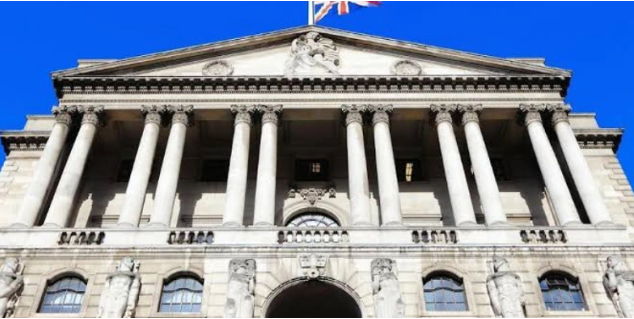The Bank of England has increased its interest rate to the highest since 2009.
Newsonline reports that the Bank of England boosted interest rates to 1%, the highest level since 2009, to combat rising inflation.
ALSO: Forex Remittances Crash By 48% Amid Dollar Shortage – CBN Report
This, Newsonline Nigeria understands was disclosed in the monetary policy summary released today.
The nine MPC members at the Bank of England voted 6-3 in favour of a quarter-point increase from 0.75 percent. However, Catherine Mann, Jonathan Haskel, and Michael Saunders advocated for a larger rise to 1.25 percent to prevent the inflation spike from being rooted in the economy.
What the BoE is saying
The Bank said, “At its meeting ending on 4 May 2022, the MPC voted by a majority of 6-3 to increase Bank Rate by 0.25 percentage points, to 1%. Those members in the minority preferred to increase Bank Rate by 0.5 percentage points, to 1.25%”
The bank added that its hawkish stances would be accompanied by the selling of UK bonds. BoE said, “As Bank Rate is now being increased to 1%, and consistent with the MPC’s previous guidance, the Committee will consider beginning the process of selling UK government bonds held in the Asset Purchase Facility.“
The report added, “The Committee’s updated central projections for activity and inflation are set out in the accompanying May Monetary Policy Report. The projections are conditioned on a market-implied path for Bank Rate that rises to around 2½% by mid-2023, before falling to 2% at the end of the forecast period”
Bank of England Governor, Andrew Bailey said at the press conference that most members of the MPC “judge some further tightening of monetary policy might be appropriate,” and the uncertain outlook led to a range of views on the committee
What you should know
- Based on the bank, UK GDP is estimated to have risen by 0.9% in 2022 Q1, stronger than expected in the February Report. The unemployment rate fell to 3.8% in the three months to February and is likely to fall slightly further in the coming months, consistent with a continuing tightening in the labour market and with a margin of excess demand at present.
- UK inflation climbed to 7.0% in March, which was more than the forecast in the February report. This level of inflation in comparison to the 2% target is mostly owing to past high rises in global energy and tradable goods prices, the latter of which is attributable to a shift in global demand toward durable goods and supply chain disruptions.
- The bank predicts that CPI inflation will grow further during the rest of the year, peaking at just over 9% in 2022 Q2 and averaging just over 10% in 2022 Q4.
- The bank also projects that the unemployment rate is likely to fall slightly further in the near term. It is expected to rise to 5½% in three years’ time given the sharp slowdown in demand growth. Excess supply builds to 2¼% by the end of the forecast period.













